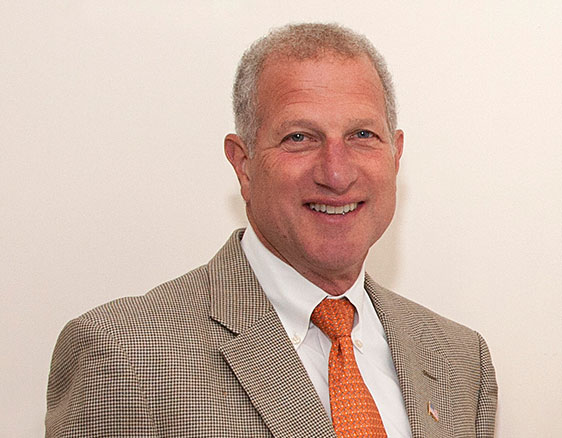Shelton Mayor Mark Lauretti: ‘We’re a city that’s a destination’
“Things have been going great,” said Shelton Mayor Mark Lauretti of his town’s current status. “But I don’t think it comes as any surprise , this has been going on for a number of years and after the pandemic it has really accelerated itself. People are really seeing the value of what Shelton has to offer in terms of our business community, the options that people have for shopping and dining and employment. We’ve become an employment hub here in Connecticut.”
“I think if you look at Shelton in the 1990s, we are a different city now,” he added. “We’re a city that’s a destination, a city that has reinvented itself. We were an old industrial blue-collar kind of place. And now are a corporate community with a thriving downtown. Pre-pandemic, anywhere from 22,000 to 25,000 people would commute to work every day. That has consistently grown over the last 30 years.”

Those 30 years were also entirely within Lauretti’s tenure. He has served as the city’s mayor since 1991, winning 14 consecutive two-year terms. Shelton has been a Republican stronghold since the 1960s, and Lauretti can reasonably rely on support from the board of aldermen where the sole Democrat is outnumbered 7-1.
Since Lauretti took office, the census has shown Shelton growing by almost 14% from 35,418 in 1990 to 40,869 in 2020. He attributed that change and the accompanying transformation of Shelton’s formerly industrial downtown to a simple formula.
“I tell people all the time that there are two things that you must do to ensure growth. One, you have to have a good quality of life. The community has to be safe, and you have to have opportunities for people to recreate, to shop, to work,” he said.
“And the second thing is that you have to be affordable. And Shelton is affordable. We have been consistently year in and year out.”
In order to maintain that affordability, Lauretti said that the key has been a combination of smart investments in city projects and an emphasis on paying down debts.
“We took over our school bus transportation almost 10 years ago. And we’ve provided that service for the same price for the last eight years,” the mayor said of one such investment. “If you had a private carrier or provider it goes up by the millions. When you do things like that, people complain, ‘Oh he doesn’t spend enough money.’ You can say that about every single category. Police, fire, EMS, recreation, education. We spend less than everybody else , but I will tell you that in a year and half we will be debt free. We will have no bonded indebtedness.”
In the mayor’s view, that will make Shelton a stable, reliable place for companies to locate the offices and light industrial operations he hopes will unite the city’s industrial past and economic future.
“We’re predictable for companies and they like that because they need to plan from year to year. We’re predictable for seniors living on fixed incomes that own their own homes, they don’t have to do a reverse mortgage or sell. And we’re predictable for the young family that is trying to make mortgage payments and pay college tuition,” he said, noting that attracting a diverse population with steady work will also help the city’s downtown stay a lively economic engine in its own right.
“Manufacturing has been a part of America’s past since its early inception,” Lauretti observed. “To abandon it is just wrong. But manufacturing is different today than it was in the 40s, 50s, 60s and 70s. There’s more regulation and technology.”
According to Lauretti, one of the brightest indicators that this future is attainable is a 75-acre parcel the city purchased from the Federal Deposit Insurance Corp. after it was seized from a former owner.
“We’ve got every acre of that parcel under contract,” the mayor said. “We are making it a manufacturer’s corporate park. Bigelow Tea is the biggest one , they are proposing a 300,000-square-foot facility on this property to house their Connecticut operations. They’ll be doing manufacturing, warehouse distribution, and their corporate office space. There’s no question that we’re moving in a positive direction.”